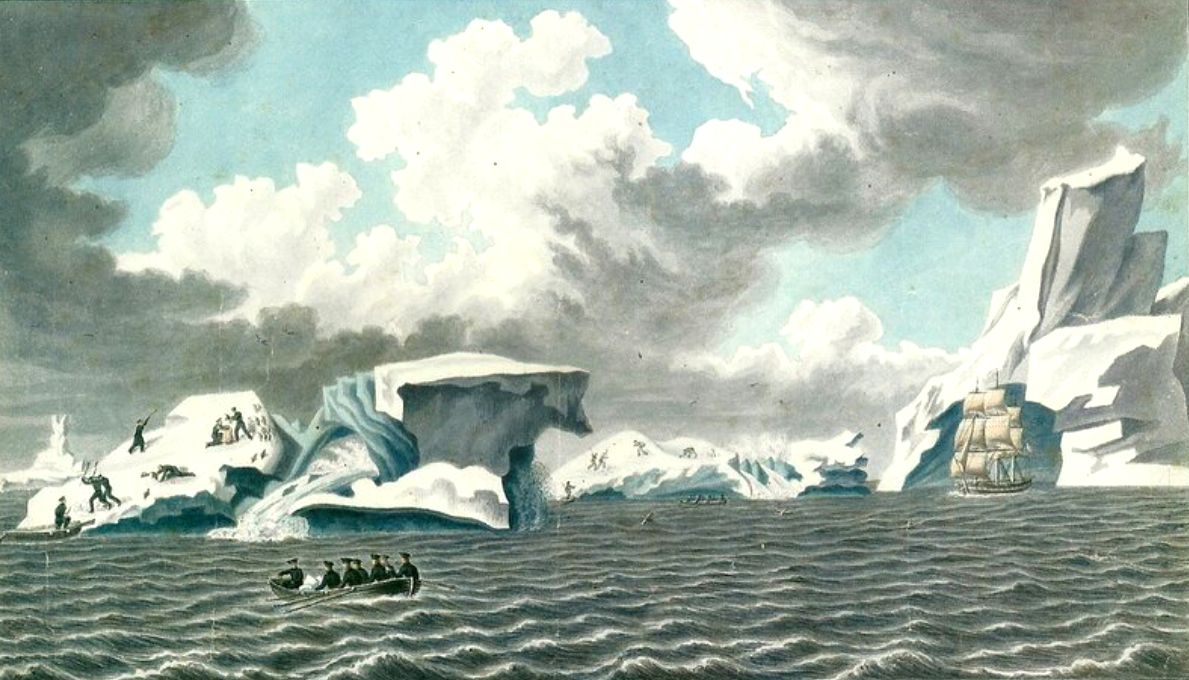In 1916, a German U-boat sank a merchant marine ship flying Allied colors off the coast of Antarctica, somewhere between Elephant Island and Deception Island in the South Shetland Archipelago.

It was believed that all souls aboard the ship had been lost, along with its cargo of food and medical supplies bound for the Western front. That is, until a lone survivor was recovered some two years later in 1918 on an unnamed tidal island just off the north-west coast of the Antarctic Peninsula.

The survivor identified himself as Edward Allen Oxford, a British Imperial citizen. Despite two years having passed, he claimed to have been marooned for no more than six weeks on a nearby larger island which he insisted was warm and tropical, with abundant vegetation and wildlife.
Since the island on which he was discovered was a tidal island, it was not understood how he had survived for such a long time. Regardless, as no such island was known to exist that far south, and there was a significant discrepancy of time between his accounting and reality.

Therefore, Oxford was decreed ‘mad’ by Imperial authorities — which was an obvious consequence of the circumstances — and was sent to a convalescence facility in Nova Scotia to recover.
At that facility, he met and fell in love with one Mildred Constance Landsmire, a so-called “bluebird” or Nursing Sister with the Canadian Army Medical Corps. He was released after 18 months, and the two married and moved westward to live near a cousin of Oxford who ran a small dairy farm in the province of Quebec; where Oxford aided his cousin with farm chores.
Oxford later took up job as a forester, as he did not have a knack for agriculture and farming. This work-life caused him to be away from his beloved Mildred for weeks and sometimes months at a time, a lifestyle with which he had been well-acquainted as a merchant marine.
During this period, he penned many letters to his wife, in which he professed his undying devotion to her, and in which he extensively recorded his memories of having been marooned on his supposed tropical island off the coast of Antarctica.
Despite official denials of any such geographical anomaly in the region, Oxford stuck to his story throughout his whole life, and is believed to have written some two hundred letters to his wife describing various aspects of the fabulous land he supposedly discovered there.
Many of the letters found recently in their Quebec house described his life in the lumber camps of the region, along with his vivid recollections of having been marooned on a supposed tropical island off the coast of Antarctica during the Great War in details.
Eventually, the official Imperial records over a hundred years old confirmed that Edward Allen Oxford was a merchant marine, that his ship had been torpedoed, and that he was indeed recovered some two years later without any rational explanation for how he had been able to survive for so long in such a harsh environment.
Today Oxford’s story has been forgotten, and what the whole world prioritised about his story is that officials called him “insane”. But no one could offer any explanation for how he’d survived in supposedly sub-zero temperatures without food for so long.
To know more about the strange case of Edward Allen Oxford, read this interesting article on Lost Books/Medium
This article has been republished in brief from Quatrian Folkways Institute/Medium




